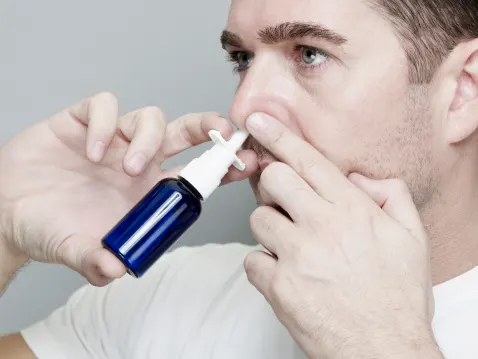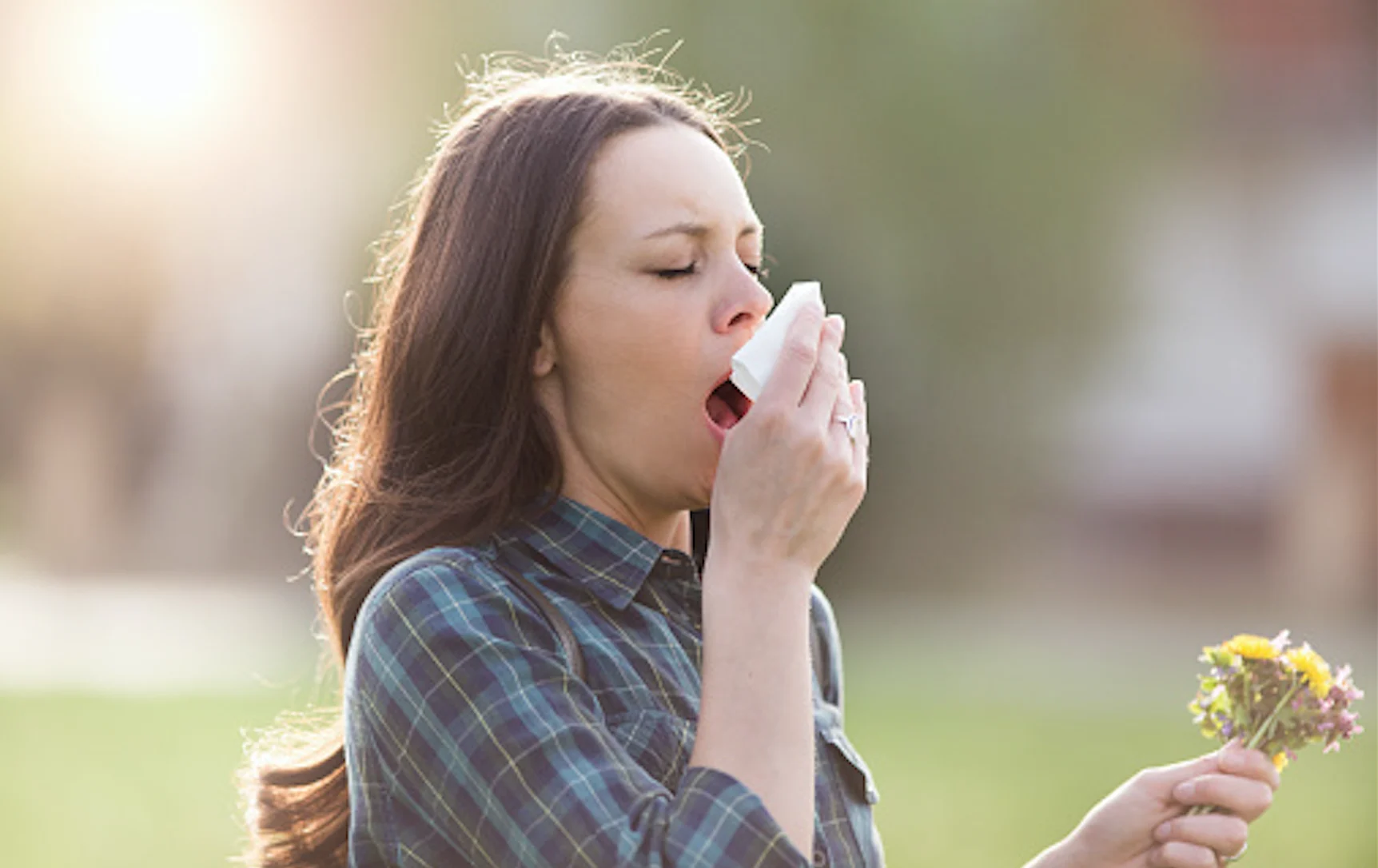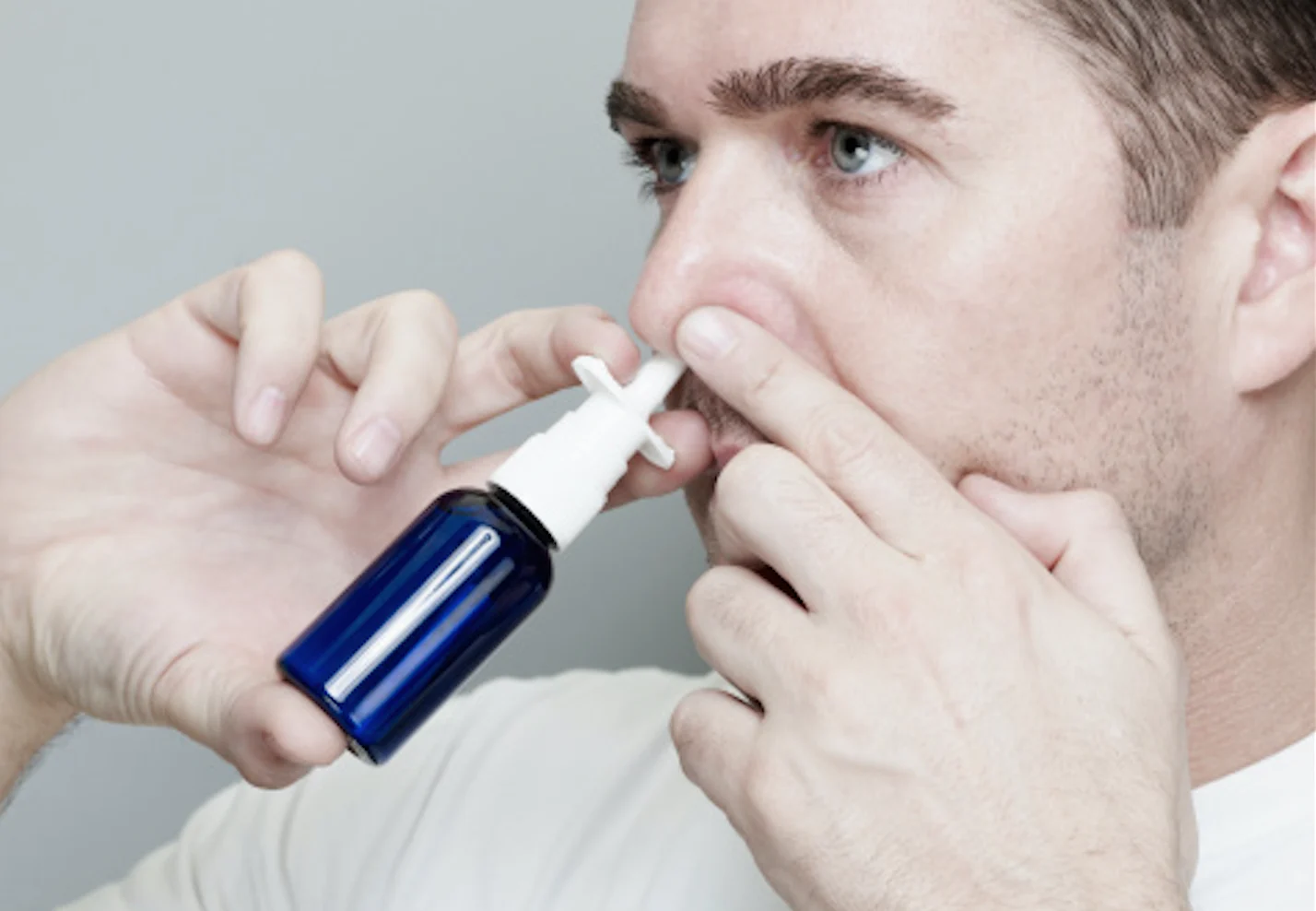
Here's how to keep your allergy symptoms at bay
There are plenty of options out there for those in need of allergy relief

Courtesy: Getty Images
Temperatures are (mostly) on the up, and with them the dread of allergy sufferers looking ahead to the coming pollen seasons. But though allergy sufferers might feel like it’s inevitable, they’re not helpless.
According to allergist Dr. Gordon Sussman, there are plenty of options for those who want to head the symptoms off at the pass, so long as you keep an eye on the successive allergy seasons and plan accordingly -- starting with tree pollen, which ramps up as temperatures warm, to grass in May and June, followed by ragweed in August and September.
The first thing you can do is limit your exposure to allergens in your own home.
"You basically keep your windows closed, because pollens are outdoors, and use an air conditioner," Sussman says. "Also, when you come in from the outdoors you can take a shower to wash off pollens..."
BE PREPARED: Check out the Allergy Outlook before heading out
You can limit your exposure to indoor allergens, such as mould and pet dander, by wiping surfaces clean, and keeping indoor humidity under control. Regular washing of beddings also helps when it comes to dust mites, and you might consider investing in sealed mattress covers to avoid buildup.

Courtesy: Getty Images
But you can’t stay indoors forever. Sooner or later, sufferers will have to face the season, but Sussman says even then there are plenty of options.
The first: Pharmacotherapy -- managing symptoms with medications, sprays and other remedies.
Topical treatments include nasal steroid sprays and even anti-allergy eye drops. Sussman says they are very effective methods of keeping symptoms at bay. Antihistimines are another tool, though Sussman says allergists recommend only those which are non-sedating and non-impairing.
And rather than only taking them when symptoms appear, Sussman says they work best when they’re used proactively.
“For maximum benefit, it’s better if you take it every day during their allergy season. The optimal time would be a week before the season starts, if you can do that,” Sussman says.
For a longer-term remedy, Sussman says sufferers can consider immunotherapy -- periodic exposure to the allergen to build up a tolerance over time. Often, this is done with injections every week, building up the dose, then maintained for a period of time every two to four weeks.
For the needle-shy, standardized tablets, taken under the tongue, are available for some allergens.
“There’s a lot of choices, and the advantage of immunotherapy is that it’s more efficacious than pharmocotherapy,” Sussman says, though he stresses it must be done correctly, by people who know what they are doing.
Regardless of how allergy sufferers choose to get ahead of their allergy, Sussman warns not to see it as just a minor nuisance.
“You don’t really sleep properly, you don’t function as well,” he says. “It affects your quality of life, it affects your learning ability, it affects a lot of things other than just the symptoms.
Thumbnail Image source: Getty Images











